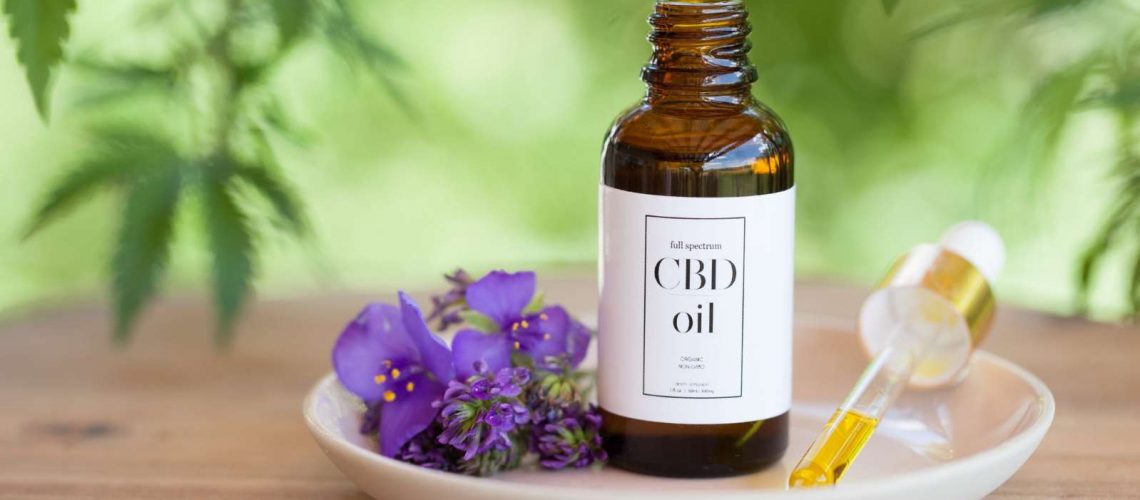The regulations for Alaska’s Industrial Hemp Pilot Program were established in 2018, although they have not yet been completed. Although the sale of items made from hemp is allowed in Alaska, there are minimal limits on CBD.
Hemp wasn’t taken off the list of Schedule I drugs under the Controlled Substances Act until the Farm Bill of 2018 was changed and put back in the category of a crop. The bill made it legal for US citizens to cultivate, refine, and sell hemp and products produced from it in all 50 states. Most of the time, ordering from a reliable online retailer is the most practical method to have CBD oils delivered straight to your door. There are many stores in Alaska for the best CBD oil.
What Is CBD?
Kozela et al. (2016) defined CBD as a non-psychoactive cannabinoid in cannabis. CBD is an abundant cannabinoid in the plant and comes after THC, which is responsible for the euphoric high. CBD, which may be extracted from either marijuana or hemp plants, is a promising medicinal compound with multiple applications. Perucca (2017) noted that CBD’s anti-inflammatory, analgesic, anti-anxiety, and anti-seizure qualities are just a few of the uses that have been discovered.
CBD Categories
Three different kinds of CBD:
- The purest form is CBD isolates; it only includes CBD (cannabidiol) and no additional cannabinoids, terpenes, or beneficial fatty acids from the plant. Isolate is sold as a crystal or powder, although some companies also offer it as an oil.
- Broad-spectrum CBD oil is a compromise between CBD isolate and full-spectrum CBD oils. It has the other cannabinoids and chemical components found in marijuana, except THC. It has all the helpful chemicals except THC so you may experience some of the entourage effect’s advantages.
- Broad spectrum CBD oil contains not only CBD but also the full complement of cannabinoids found in cannabis, including THC, terpenes, and fatty acids. It is common to refer to full-spectrum CBD as a complete plant extract.
Alaska CBD Oil Purchase Information
Since the state’s liberal marijuana policies, CBD oils in Alaska are more widely available than in many others. You can find them on the Internet, where you can also compare prices and goods. There are questionable businesses peddling items with negligible or no CBD content, and as a result, this may reduce CBD oil’s efficacy and health advantages. The CBD oil market is young and expanding, and regulators and lawmakers have yet to catch up with these unscrupulous businesses. You can safeguard yourself from misleading CBD oil claims by following simple guidelines.
Find out if the company sells products that an independent laboratory has examined. These labs can verify whether or not the products contain the claimed amounts of CBD and whether or not they include any unwanted additives. Be skeptical if the company boasts any purported health benefits that are too good to be true. Rupasinghe et al. (2020) established that CBD oil has many potential advantages for health, but it shouldn’t be expected to treat every ailment. Making an educated choice about CBD oils and their applications is essential.
Where to Buy CBD in Alaska Online Stores vs. Brick-And-Mortar Stores
Alaska’s Local CBD Retailers
Alaska is an excellent spot to live if you want to buy CBD oil from a physical store rather than online. CBD oil is widely available throughout Alaska from smoke shops, e-cigarette retailers, and medical marijuana dispensaries. Some coffee shops are offering CBD oil to their customers. The ability to try things out in person and get the advice of a trained expert is one of the few reasons to visit a brick-and-mortar shop instead of shopping online. It can be tricky to determine a quality item. It may not be easy to trace the origin of CBD oils sold in stores since the industrial hemp plants used to produce them do not qualify for an Alaskan pilot program. Because stores are costly to manage and operate, in-store prices for CBD oils tend to be higher than those on the Internet.
Online Stores
When you order CBD oil online from a reputable vendor, you can rest confident that the product you receive has passed all applicable quality assurance tests and is safe to use. You may find much information about a possible provider on the Internet, including reviews written by previous customers. The better the company is willing to share its independent lab reports. To ensure that CBD oil is of the highest quality, review the accompanying lab reports. When comparing online versus in-store prices, buying online is more cost-effective. Discounts and loyalty programs make shopping online a better deal than visiting a local dispensary or head shop. Certain businesses reward the loyalty of their clients through special discounts and other perks.
CBD Law in Alaska
Limits on CBD Possession in Alaska
Hemp is now prohibited from growing, processing, and selling in the state of Alaska. Though it’s illegal to sell CBD products produced from hemp in California, the law isn’t strictly enforced. The possession of CBD products derived from hemp carries no specific sanctions now, and possession of cannabis is restricted within particular parameters. Anyone above 21 can purchase and possess up to an ounce of marijuana from a dispensary. One to four ounces of marijuana can result in a misdemeanor charge, leading to a year in jail and a $10,000 fine. Those caught with more than four ounces could face felony charges, up to five years in prison, and a maximum fine of $500,000.
Cannabidiol Rules in Alaska
In April of 2018, Alaska passed Senate Bill 6, which gave the state the green light to make a pilot program to test the viability of hemp. The measure specifies that industrial hemp includes any portion of the cannabis plant having a THC concentration of less than 0.3%. The federal definition of industrial hemp has changed since the 2018 Farm Bill was passed; however, Alaska’s explanation is consistent with the federal one.
As a result of the passage of the 2018 Farm Bill, the state of Alaska has proposed new laws for the sale and use of hemp and CBD derived from hemp. May 2019 saw the proposal of new regulations, but thus far, they have not been completed or made law. In Alaska, Fortenbery & Mick (2014) commented that industrial hemp and hemp products would be regulated by the Department of Natural Resources. Until the final regulations are enacted, all activities related to the cultivation, marketing, or sale of industrial hemp are prohibited by state law, per a document from the state. The Consumer Protection Unit of the Alaska Department of Law has also issued a statement saying that CBD sales are not permitted in the state. The proposed rules require a cannabinoid potency test for all industrial hemp products. No therapeutic, medicinal, or preventative claims can be made for industrial hemp products. Labeling on products must also adhere to tight regulations.
Licensing
Growers, processors, and dealers of industrial hemp and hemp-derived goods, such as CBD oil, will need to apply for a license from the Alaska Department of Natural Resources under the new guidelines. Each year on January 1st, registration is renewed because it’s only good from the date you registered to the end of the following calendar year. Any application for a license to cultivate, process, or sell industrial hemp must contain the applicant’s full legal name, a copy of any relevant business licenses, the address, GPS coordinates, and a map of the proposed cultivation, processing, and retail areas. Registration and application costs must also be paid. Included in the proposed charge schedule is a:
- The application fee is $100 (renewals are $50) and is non-refundable;
- Paying the annual grower registration cost of $200;
- Registration as a processor costs $250 per year (unless the product is not for human or animal consumption);
- One year of registration as a processor costs $650 (for either animal or human consumption);
- Discounted price of $300 per year for registering as a shop.
Based on the proposed regulations, licensed farmers would be able to cultivate, store, and sell unprocessed industrial hemp. The state plans to randomly sample harvests and tests them for THC content. Neither the cultivation nor the storage of industrial hemp, nor the processing of industrial hemp, will be allowed in any building that is principally used for dwellings.
Conclusion
The legal status of cannabis in Alaska is among the most lenient in the country. Those over 21 can legally purchase cannabis from state-approved dispensaries and consume it publicly. Alaska’s cannabis laws are among the most lenient in the country compared to other states. In areas where recreational marijuana use is permitted for those over 21, one should have a valid government-issued ID to purchase cannabis from a dispensary. If you want to stay on the right side of the law while buying CBD oil, you need to verify that it comes from organic industrial hemp and that the THC content is less than 0.3%.
References
Fortenbery, T. R., & Mick, T. B. (2014). Industrial Hemp: Opportunities And Challenges For Washington (P. 19). Washington State University, College Of Agricultural, Human, And Natural Resource Sciences.
Kozela, E., Haj, C., Hanuš, L., Chourasia, M., Shurki, A., Juknat, A., … & Vogel, Z. (2016). HU‐446 And HU‐465, Derivatives Of The Non‐Psychoactive Cannabinoid Cannabidiol, Decrease The Activation Of Encephalitogenic T Cells. Chemical Biology & Drug Design, 87(1), 143-153.
Perucca, E. (2017). Cannabinoids In The Treatment Of Epilepsy: Hard Evidence At Last?. Journal Of Epilepsy Research, 7(2), 61.
Rupasinghe, H. V., Davis, A., Kumar, S. K., Murray, B., & Zheljazkov, V. D. (2020). Industrial Hemp (Cannabis Sativa Subsp. Sativa) As An Emerging Source For Value-Added Functional Food Ingredients And Nutraceuticals. Molecules, 25(18), 4078.
I presently work as a GP in London. Using the acquired academic and professional experience, I advise patients with various complaints about mental health – depressed mood, nervousness, lack of energy and interest, sleep disorders, panic attacks, obsessive thoughts and anxieties, difficulty concentrating, and stress. In my free time, I love to paint and go on long walks on the beach. One of my latest obsessions is sudoku – a wonderful activity to calm an unease mind.
[email protected]
- DELTA 8 TINCTURES By Deltamunchies-Comprehensive Evaluation of the Top Delta-8 Tinctures - October 10, 2023
- Tropical Bliss: Bali Disposable Vapes Reviewed and Compared - September 26, 2023
- Benefits of Omega 3 (Vegan) - August 11, 2023



